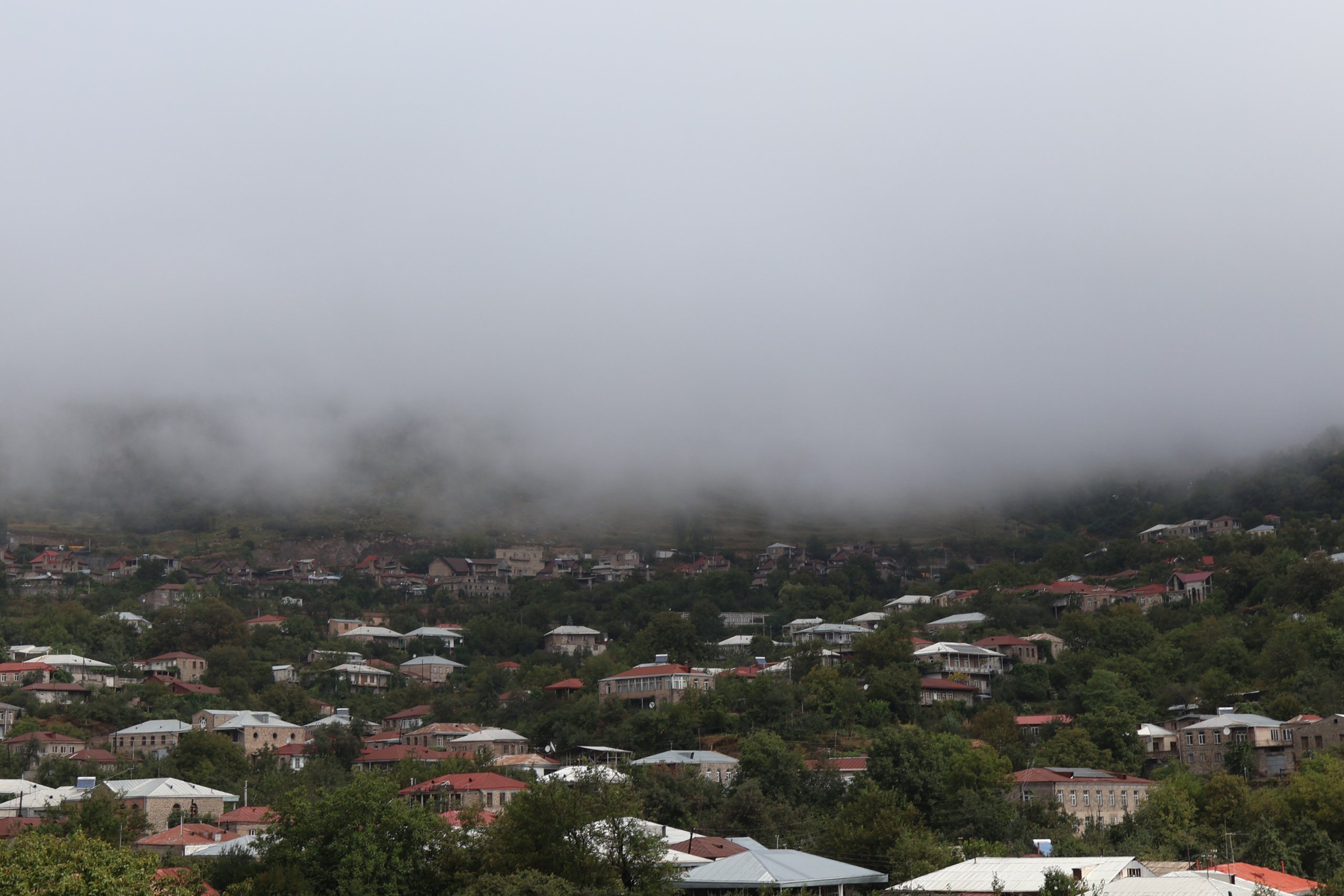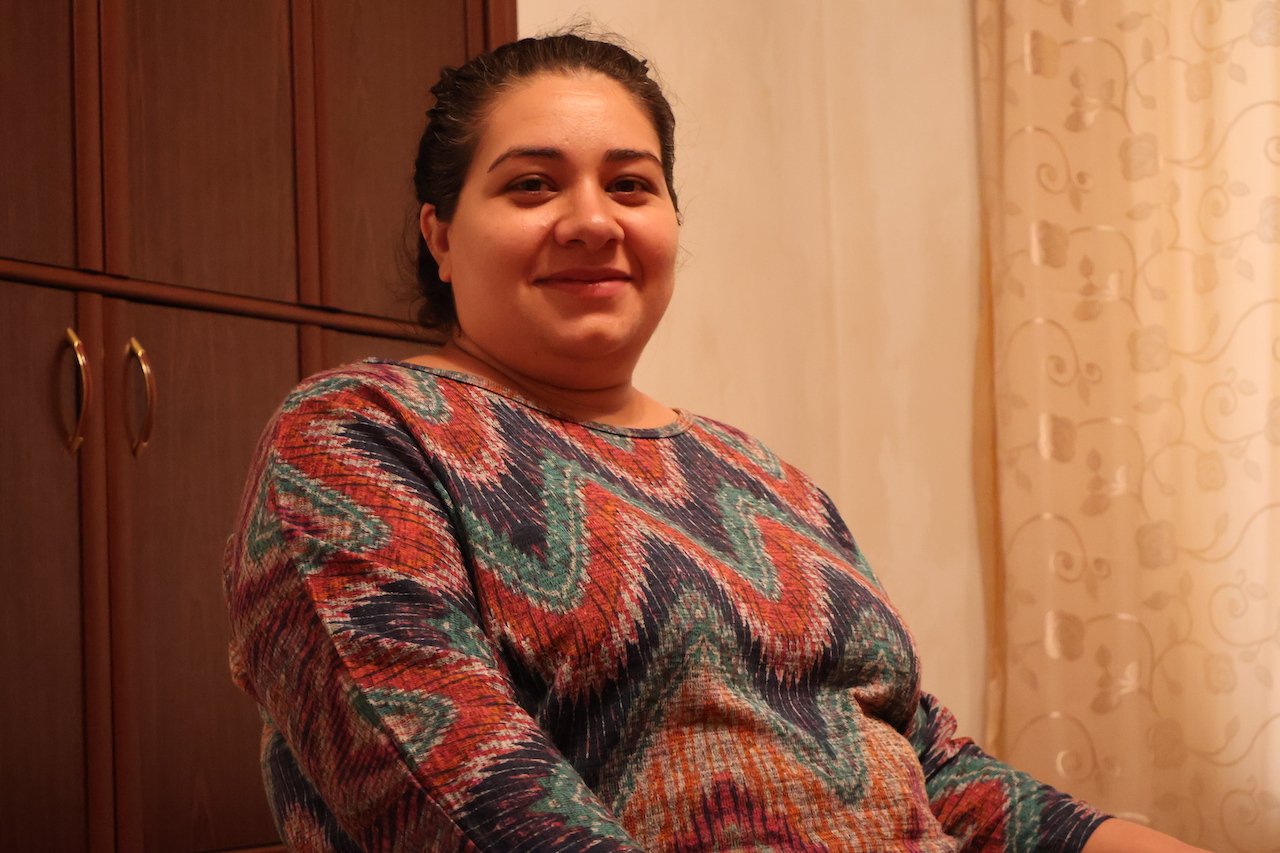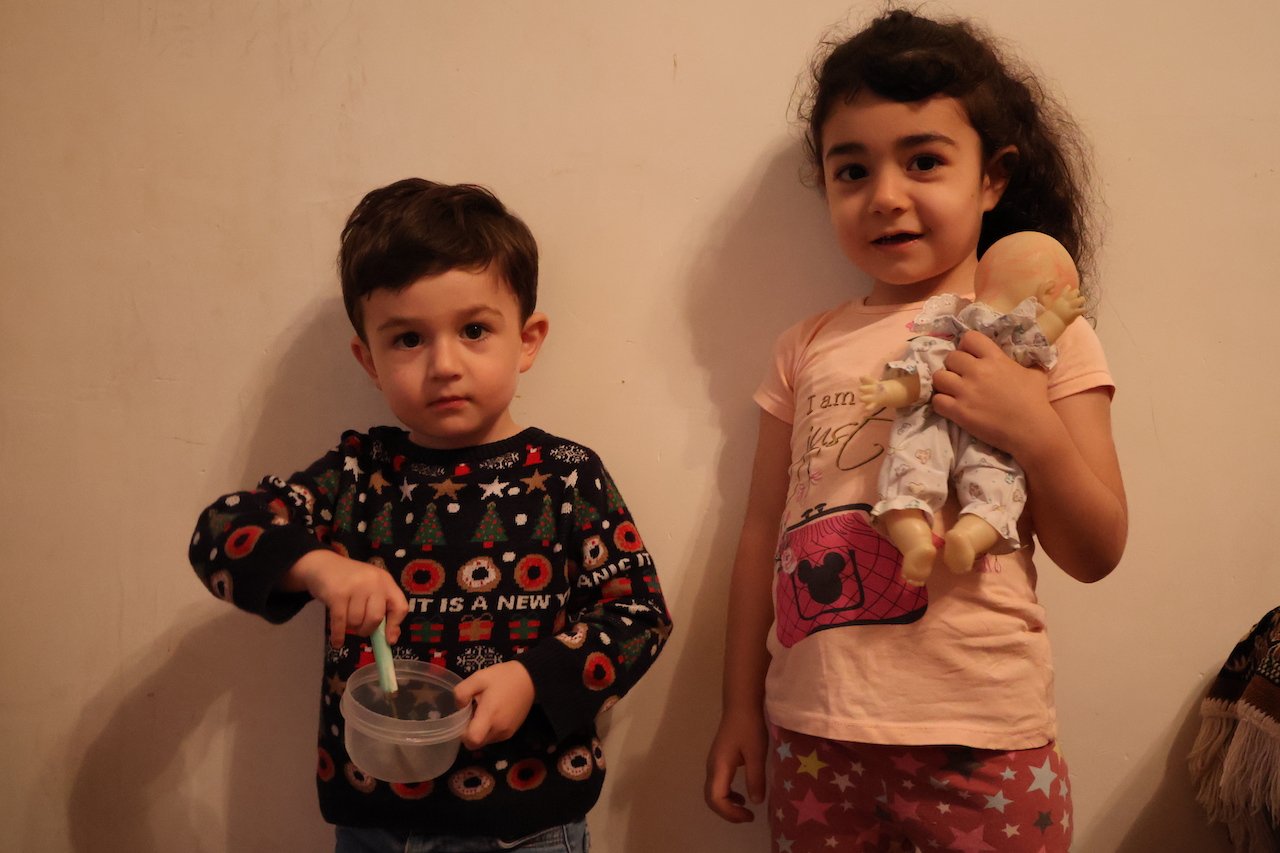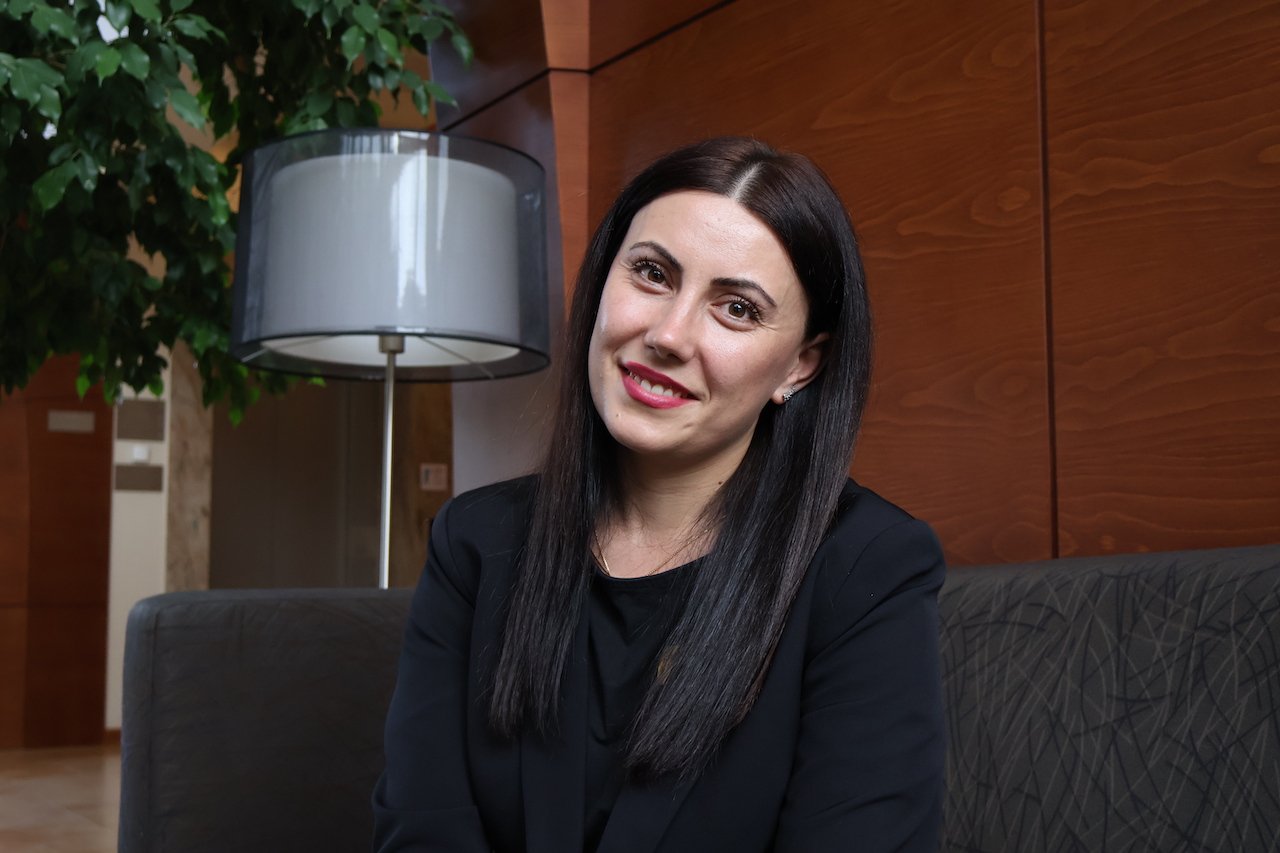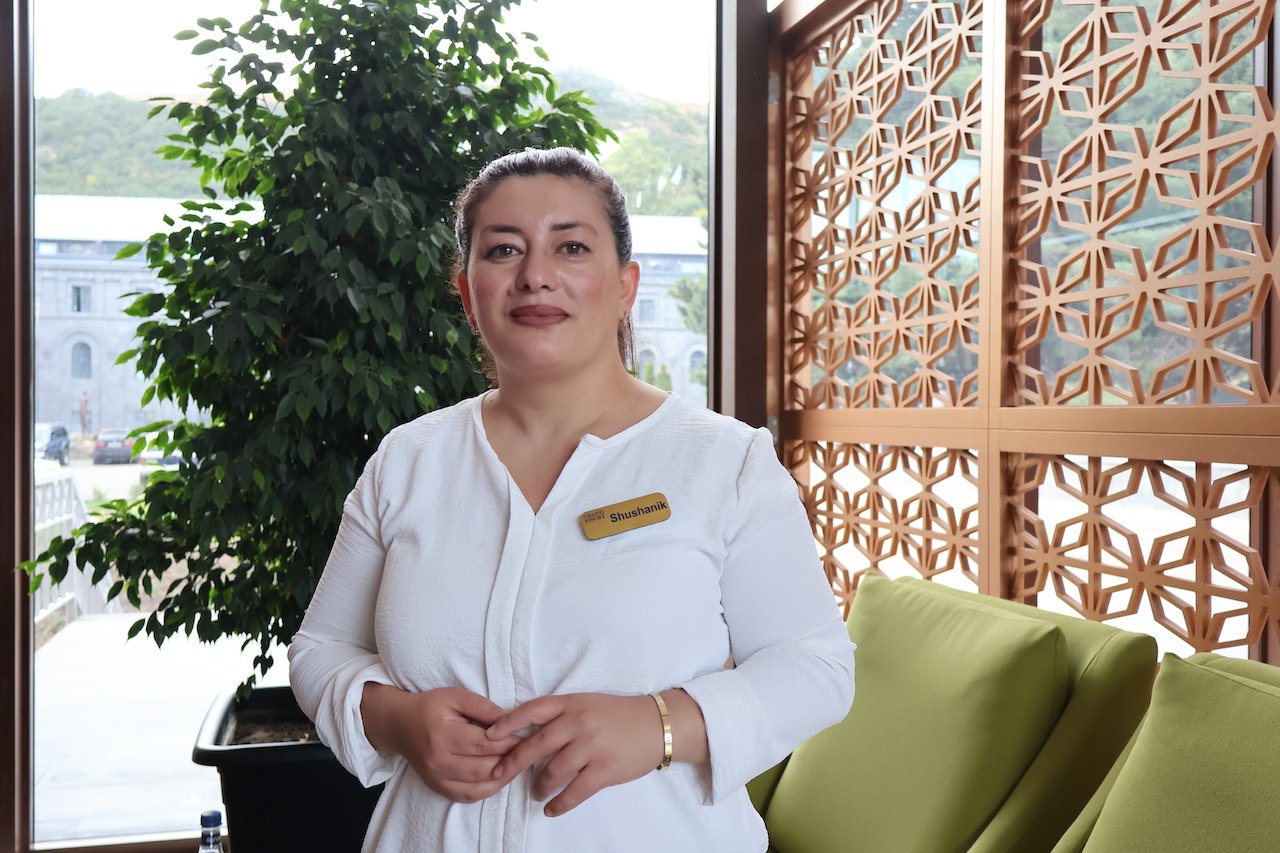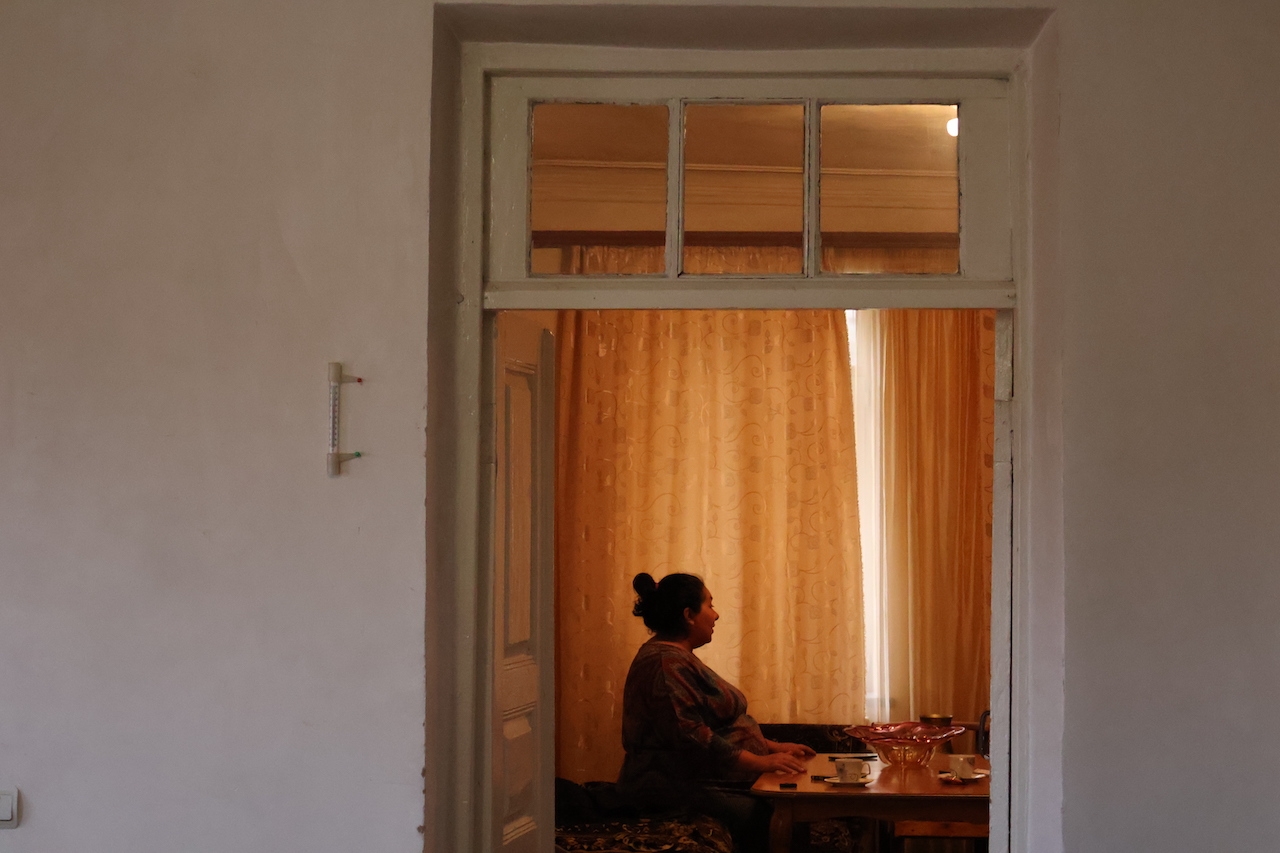
Following the mass exodus of over 100,000 Armenians from Nagorno-Karabakh and Azerbaijan’s military takeover of the region in September 2023, Yerevan and Baku kickstarted the process of border demarcation. This development, coupled with heated debates within Armenian political circles, has also been accompanied by growing worries within society at large, particularly among those living in the border regions. The negotiations and processes behind the scenes remain unclear to the public, while the protracted conflict between the two nations and Azerbaijani military attacks after its victory in 2020 trigger further distrust.
Despite promises of an 'era of peace,' people in border towns try to carry on with their lives while unsure of the future. Mothers remain vigilant, and children play war games all while tensions and concerns about a new war persist.
Vardenis: The illusion of peace
Only a two-hour drive from the capital, Yerevan, and adjacent to the region’s largest lake, Sevan, lies Vardenis, a town with roughly twelve thousand residents. Vardenis and nearby villages have repeatedly been targeted by Azerbaijani armed forces since 2020, following the Second Nagorno-Karabakh war.
In September 2023, while traveling to Vardenis, we observed European Union Monitoring Mission vehicles in Armenia passing us on the region's main highway, heading towards the city and its nearby villages. However, just a few days after our visit, the town was targeted once again. The mission was deployed to Armenia in October 2022 shortly after the largest attack on the country’s territories since independence; aimed at minimizing the risk of new escalations and observing ceasefire violations.
For Astghik Hakobyan, a 35-year-old mother of four, the word 'peace' often feels elusive amidst the landscapes of Vardenis. After marrying a resident of the town in the mid-2000s, Astghik, originally from the nearby town of Martuni in the Gegharkunik region, moved to the village of Sotk to start a new life with her husband. Little did she know that her life, like those of her fellow villagers, would be changed one night in September 2022.
"The word 'peace' does not mean anything to me; I don't envision anything. It is just a word we say," she replied, half-smiling as she recalled the events of September 13-15. "We live for the present day or even the hours ahead."
Sotk was one of the first villages to be shelled by Azerbaijani forces on the night of September 13, leaving residents' homes destroyed and people gripped by fear, panic, and uncertainty.
"There were shootings every day, maybe even right now, but that day was different," Astghik recalled. She vividly remembers the exact time she first heard the unusually loud sound, similar to shelling: five minutes past midnight. "Then I looked out the window and saw the lights coming from the positions."
Her priority was to protect her children.
Alone with her four children at home, as her husband is a migrant worker spending most of his time in Russia, Astghik bore sole responsibility for their safety. Panic did not overtake her; she swiftly ensured the children exited the house safely.
"I did not lose my cool. I woke up the kids, told them to get ready, and we left for Vardenis," Astghik recalled. She managed to gather their documents and a small amount of savings but forgot about the gold she owned. "But I didn't even look back; all I cared about was saving my children's lives."
Clad in sleepwear and sleep-deprived, Astghik took her terrified children out of the village with the help of her relatives in Sotk. The youngest, Gor, encountered real war for the first time, later mimicking battles against 'Turks' in playground games (note: "Turks" is often used among Armenians as a generalized term referring both to Turks and Azerbaijanis).
"Gor is the only one who expresses his experiences through outdoor games," Astghik explained. "The other kids don't talk much about the war, but they haven't overcome the trauma either. They didn't want to stay in the village for another hour. They were too scared," she continued. "And so were we. Every time we see or hear anything, we fear it will start again."
They left behind the familiar echoes of their former life; in her mind, Astghik said goodbye to Sotk forever. She recalls how those fleeing had to turn off their car lights, a moment of panic that nearly caused an accident on the roads.
The family settled near Sotk, seeking refuge in Vardenis, just a few hours from the Azerbaijani border. However, the anticipated safety was disrupted by the sounds of shelling, which seemed even louder than in Sotk. "We could not find any peace," Astghik shared, explaining they decided to stay in Vardenis partly because they had nowhere else to go.
The war that never ends
"As I speak, I feel like I am going through it again," Astghik says.
The village of Sotk, though under Armenian control, remains unsafe. Those who evacuated and left their belongings behind were able to return about a month after the escalation ended. However, there was no such opportunity for those displaced from parts of Nagorno-Karabakh, which Azerbaijan took control of in 2020, nor for the remaining population of the entire region later in 2023.
Astghik's personal experience and the stories of her fellow Armenians have made her prepared to face a similar trial again; she has kept an emergency bag ready since September 2022.
"I feel like it has become part of our daily lives," Astghik says. However, this reality hasn't stopped her and her family from envisioning a future in Vardenis free from war and its fears.
Astghik dreams of creating a stable home for her family. Her 14-year-old daughter, Liana, expresses a passion for medicine and is considering becoming a doctor. Meanwhile, Gor has recently shifted his career aspirations from a soldier to a police officer.
Astghik's husband is torn between the desire to return and the practicalities of working abroad, grappling with the question of what he can change even if he returns. Astghik shares the same dilemma. "I would love to have him here with us, but there are no job opportunities here."
Despite the lack of opportunities, Astghik believes staying in their home region would be better than leaving for Yerevan or, worse, Russia, in search of a life they might not find.
Goris: daily conversations of conflict and war
Mariam Petrosyan, 33, was due to have a baby in a couple of weeks following our conversation in September 2023. She was expecting her third child, a girl, but remained cautious about making precise plans as nothing seemed certain. Growing up in the village of Karahunj in Goris municipality and now living in Goris itself, she could hardly imagine her family anywhere else.
During the 44-day war in 2020, Mariam was pregnant with her now three-year-old son. She gave birth on October 6, amidst the chaos of hospitals overwhelmed by the conflict. Reflecting on those turbulent times, she recalls, "The hospitals were very intense with soldiers, the wounded, and anxious doctors." Under immense stress and hardship, she struggled in overcrowded hospitals primarily treating severely wounded soldiers. She was repeatedly urged to go to Yerevan for her delivery:
"... But I did not go. In the evenings, I thought I would leave in the morning, but when morning came, I couldn't bear to think about leaving my family and loved ones behind."
The situation was different in September 2022. Upon hearing the shots at night, they immediately sought refuge in the basement, which was not typically used as a shelter. Within a couple of hours, they hastily prepared the basement to serve as a refuge that could sustain them for days if necessary.
They ended up staying in the basement for "three or four" days. The most challenging aspect was not the conditions or the difficulties of cooking but the sorrow of losing lives and, most importantly, loved ones.
"The Turks have come," Mariam recalls her daughter, Arevik, saying. Initially, staying in the basement was an "interesting" experience for the children, but as they observed the adults' anxiety, they too became worried and started crying. After several days in the shelter, Mariam had to leave for Yerevan with her children due to health concerns. However, she found it difficult to stay away from home and loved ones, explaining that "concerns are doubled when you are far from home."
"If your dear ones, your family, your house, your everything is here, you have nothing to do in Yerevan [...] because your future is here," Mariam asserts.
Months later, the children would still wake up in the middle of the night, fearing their hometown was under attack. When we met Mariam, she shared that her daughter, Arevik, still refused to sleep alone in her bed and was sensitive to loud noises. These reactions were largely fueled by ongoing discussions about the possibility of a new war, a topic that permeated every daily conversation.
With emergency bags packed with clothes and essential supplies, the adults were just as concerned as the children about the uncertain future.
"Everyone has concerns: some express them openly, others keep them to themselves; some talk about it constantly, while others avoid the topic altogether to prevent aggression and stress," Mariam reflects.
Mariam emphasizes that if there were peace, she would prefer to see her children's future in Goris. Neither she, nor her husband want to "start from scratch" elsewhere.
Prior to the exodus, the nine-month blockade of Nagorno-Karabakh, with the region's capital Stepanakert just two hours from Goris, prompted people in Syunik to reassess the critical importance of access to food and medicine, especially for expectant mothers and children. Mariam was profoundly affected by the heartbreaking reports of miscarriages in the besieged region, grappling with the possibilities and imagining an alternate reality where such tragedies could have been avoided.
Shortly after our visit, on September 28, 2023, Mariam gave birth to her daughter Luse (“Luys” meaning light in Armenian).
When we departed Goris for Jermuk, the entire road was shrouded in fog. As the weather cleared, we could notice Azerbaijani soldiers stationed in the nearby mountains, where they had advanced in September 2022, taking control of parts of Armenian territory. Our driver casually pointed towards Mount Ishkhanasar, a focal point during the September attack and infamous for the execution of Armenian soldiers, mentioning that while the presence of Azerbaijanis once troubled them, with the time passing they got used to seeing them on that road every day.
Jermuk
Knarik Harutyunyan: The children's subject of discussion here are basements and shelters
Knarik reassures her children through stories and fairy tales, telling them, "As long as the soldiers are here, you are safe," fully aware that any display of fear on her part could easily transfer to her children.
"If I let my emotions take over, if I show fear, who knows, if I appear weak in my child's eyes, trust me, we will have to bring them back from a much worse situation."
In September 2022, when Azerbaijan launched an attack on internationally recognized Armenian territories, Knarik, from Jermuk—once far from the borders—found herself surprised and disoriented. She also faced the daunting task of explaining to her terrified 7-year-old daughter and 4-year-old son what was happening. At that time, the concept of war was entirely incomprehensible to her—neither the word itself nor its implications. Her thoughts were consumed by upcoming workdays and the routine they would resume after just a day or two. As a hospitality worker in Armenia's most renowned resort town, she couldn't imagine Jermuk without its usual flow of visitors.
She remembers how her husband emphasized the word 'war' before she could fully grasp the seriousness of the situation.
"The children were asleep, and we woke them up. Well, how did it happen? We took the children, covered in blankets, and put them in the car, trying to decide whether to go to a shelter or leave Jermuk. Naturally, we couldn't stay at home. Throughout the ordeal, the kids were trembling, and I couldn't tell if it was from fear. I kept covering them and asking, 'Are you too cold, kids?' even though the car heater was on. It was the fear that had gripped them..."
Knarik could hardly decide what to take with them or where to go - "You're just lost," she describes it now. Yet, she quickly figured out the next step: heading to the other side of Jermuk, where her mother was alone, despite its proximity to a military unit that was under attack at the same time. For Knarik, the worst moment was her children looking back and seeing the fire—a scene that still leaves her at a loss for words even a year later.
All in their pajamas—her mother, children, and herself—they headed straight to Yeghegnadzor, a town about an hour from Jermuk. When they arrived at her husband's aunt's house, the children remained frightened. They were given water, and despite everyone's efforts to console them, they remained distant, shocked, and stressed, trying to comprehend what had just happened.
Returning to Jermuk weeks later—and for the next six months—Knarik's children remained fearful. They cried when she left them to move from one room to another in the same house, afraid to stay alone or sleep alone, always wanting their mother close by. If they woke up and found her absent, they would cry. In the initial days, they were even afraid to turn on a light or look out of the window.
It took nearly a year, Knarik explains, for the children to become somewhat calmer. Despite this, they never sought therapy for the children. Instead, she constantly talked to them and explained everything. Like everyone else in Jermuk, her children now know what to do if a similar situation occurs again.
"I was in my thirties and I didn't know what the main wall in our house was, or why you shouldn't hide in the garage or go to a designated shelter... I don't know. But now my child can sit and explain to me for hours why it's like that."
Despite her efforts to remain calm and approach the situation "coolly," September still evokes strong emotions for Knarik. She admits that in September 2023, she began packing her emergency bag again after allowing herself to momentarily forget about the threat of war for a few months. The sense of "something happening" lingered, and unfortunately, it wasn't unfounded. The target of the third consecutive bloody September, however, shifted to Nagorno-Karabakh.
Since the fall of 2022, planning for the future has become even more challenging for her, as even the smallest short-term plans hinge on whether the situation is "peaceful" or not. "It feels like our entire lives are tied to [the prospect of] peace," she remarked.
While everyone now knows the emergency action plan, the events of September 2022 caught everyone off guard, and letting go of that memory is not easy: "I don't know, that fear, those emotions, you can't erase them from a child... It leaves a deep imprint on their childhood."
Shushanik Harutyunyan
The attack left a once dynamic resort town shattered. Among the first employees of the town hotels to return to work after the fighting was Shushanik Harutyunyan. The hotel reopened in early October, and the first guests, whom Shushanik described as "brave," arrived on October 5. Gradually, the town began to regain its normal pace, although it remained emptier than Shushanik had ever seen it.
Shushanik has been living in Jermuk for thirteen years. Following her husband's death in the Second Nagorno-Karabakh war in 2020, she contemplated moving to the country's capital, Yerevan. However, her children—aged 12 and 9—found it challenging to adapt to a new city and a new home without their friends. They spent only about fifteen days in Yerevan following the 2020 war; the children were already mourning the loss of their father, and Shushanik did not want to expose them to further stress.
"We are going back: whatever happens, happens," she decided.
She mentioned that if her sons had been in Jermuk at the time of the attack, there might have been a chance to convince them differently, but they were not at home during those days and only heard about it from their friends when things had settled down.
During the September 2022 attack, they were visiting Shushanik's mother in Yeghegnadzor, so the children did not witness the shooting themselves. However, Shushanik's father-in-law, who is hearing-impaired, was home alone, sleeping. Shushanik recalls their neighbors calling and asking about their whereabouts, as they couldn't reach him despite heavy knocking on the door. The next day, they returned for him, but the women were not permitted to enter the town; only her father could go alone and bring her father-in-law.
Shushanik remembers the crowded roads filled with people carrying bags and tears in their eyes. She reflects that not everyone had the means to leave the city in their own vehicles, so special buses were provided. They feared they might never return home.
Nowadays, she says, the residents simply try to avoid the discussions on the topic. "Maybe people are already tired of talking about it," she says.
Occasionally, Shushanik contemplates leaving Jermuk but hesitates to do so without her children's approval.
"They adore Jermuk, and they can't imagine living in Yerevan... They don't like it without their friends."
____________________________________________________________________________
This publication was produced with the financial support of the European Union. Its contents are the sole responsibility of the authors and do not necessarily reflect the views of the European Union.
